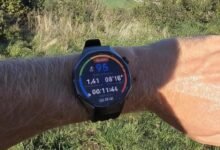Fast-Acting OCD Medications: A Comprehensive Guide for Individuals Seeking Relief

Coping with Obsessive-Compulsive Disorder (OCD) can be a never-ending cycle of intrusive thoughts, compulsive behaviors, and anxiety that won’t quit. For a lot of people, there is a big need for immediate help, even if long-term treatment is required. This is where fast-acting OCD medications can help get people back some control, relieve short-term distress, and help with distress management.
In this blog, we will look at what fast-acting OCD medications are, how they function, their pros and cons, and the necessity of using them in conjunction with other forms of treatment for long-term success.
Understanding the Disorder and Its Consequences
OCD impacts the lives of millions of people internationally. Each case features two main components:
1. Obsessions = intrusive thoughts, images, and urges that are distressing.
2. Compulsions = the anxious, repetitive behaviors or mental routines that are executed in response to obsessions.
If left untreated, OCD can disrupt daily activities, interpersonal relationships, and quality of life. While therapy options such as Cognitive Behavioral Therapy (CBT) and Exposure and Response Prevention (ERP) are effective, they are likely to need medication to relieve extremes of distress, especially in an acute phase.
What Are Fast-Acting OCD Medications?
Fast-acting medications for OCD are made to give quicker relief than regular antidepressants and other long-acting psychiatric medicines. Standard medications for OCD, mainly SSRIs, can take a good amount of time for symptoms to improve. Fast-acting medications aim to reduce immediate symptoms so patients are able to cope with severe anxiety and compulsions.
These medications are not intended to replace long-term treatment, but to ease the intensity of symptoms while waiting for long-term treatment to begin working.
Types of Fast-Acting OCD Medications
1. Benzodiazepines
Benzodiazepines, like lorazepam, clonazepam, and diazepam are prescribed to eliminate anxiety. They are able to do this by increasing the calming effect of the GABA in the brain, which results in relief.
- Pros: Acts quickly (usually between 30–60 mins) and removes panic attacks.
- Cons: Develop dependence, tolerance, and tiredness.
2. Antipsychotic Medications (Low-Dose Adjuncts)
Low dose antipsychotic medications, like risperidone and aripiprazole can be prescribed and added on. They are not really considered to be fast acting medications, but when they are paired with SSRIs, a few people do see rapid relief of symptoms.
3. Beta Blockers
Beta blockers like propranolol can help reduce the physical symptoms of stress with OCD. It is often used for performance anxiety as well. They provide quick relief during overwhelming compulsive urges.
4. Off-Label Options
Some prescribers may use ketamine and other NMDA receptor blockers for off label use. Especially with treatment-resistance OCD, ketamine has been found to provide rapid relief for those symptoms.
See also: DBT Therapy: A Powerful Tool in Addiction and Mental Health Recovery
How Fast-Acting OCD Medications Work?
Fast-acting medications work with different mechanisms than traditional antidepressants.
- Benzodiazepines: GABA enhancement.
- Beta Blockers: Irreversible inhibition of adrenaline and its functions.
- Antipsychotics: Obsessive thoughts are reduced via other pathways of serotonin and dopamine.
- Ketamine: Alters glutamate pathways and may help with the “reset” of OCD.
The most important part of each of these medications is how quickly they work. Other antidepressants, like SSRIs, take anywhere between 6–12 weeks to work, whereas these provide relief within minutes.
Who are the Best Candidates for Fast-Acting OCD Medications?
Fast-acting medications for OCD are not necessary for every individual with OCD. They are most commonly prescribed to those who:
- Experience severe panic and anxiety along with OCD.
- Need relief for short periods while SSRIs and therapy are working.
- Have treatment-resistance OCD and goes along with additional support.
Identify situations that lead to compulsive behaviors becoming too difficult to manage.
Risks and Considerations
Fast-acting medications for OCD can provide temporary relief; however, there is a risk of overuse.
- Dependency Risk: Fast-acting medications such as benzodiazepines can lead to physical and psychological dependency.
- Tolerance Development: Continued use of a substance can lead to a required increase in dosage due to a decrease in effectiveness.
- Side Effects: Medications can cause sedation, dizziness, impaired coordination, and emotional blunting.
- Long-Term Use Is Ineffective: Fast-acting medications should serve as temporary solutions.
Medications should be utilized in combination with a long-term plan involving therapy and SSRIs. They should be saved for specific situations.
The Role of Therapy Alongsie Medication
The root cause of OCD is rarely resolved with prescription medications. Fast-acting medications can decrease symptom intensity long enough to help engage in effective therapy, including CBT with ERP.
- CBT (Cognitive Behavioral Therapy) assists patients in identifying and disputing their obsessive thought patterns.
- ERP (Exposure and Response Prevention) enables patients to face their compulsive triggers without exercising compulsive behaviors.
- Mindfulness exercises and Relaxation Techniques can be helpful complementary strategies.
Natural and Holistic Alternatives
Natural methods can be used in addition to fast-acting medications. Examples include breathing techniques to calm the nervous system.
- Meditation and mindfulness can help reduce obsessive thought loops.
- Magnesium, inositol, and L-theanine are examples of supplements, though you should always see a physician before starting any of these (to be safe).
- Some lifestyle adjustments like regular exercise, healthy sleep hygiene, and cutting down on caffeine can help.
These strategies do not provide instant relief, as medications do, but they can offer ongoing relief and help build some resilience.
Understanding the difference between immediate relief and long-term management regarding OCD medications is important.
- Emergency and acute episode medications provide immediate but temporary relief.
- Sustainable improvement comes from long-term efforts with SSRIs, SNRIs, and therapy.
These are a combination of strategies to address the root causes of the problem. Most treatment plans are a combination of both, tailored to the person’s needs.
Talking to Your Doctor
To start with fast-acting OCD medications, you need to speak with a specialist. You might want to ask:
- What are the benefits and risks, both long- and short-term?
- Can these medications help during the waiting period for the SSRI?
- What safeguards are in place to watch out for side effects and dependence?
- What are the best ways to meld this with therapy?
Breaking the Stigma
A waiting period for an SSRI might cause the patient and the prescriber to feel anxious and question if the medication is doing its part, or the waiting period might cause the patient and prescriber to pencil in supplemental fast-acting medication. Access to fast-acting medication should compile aid-in-crisis relief in an effective, managed medication plan with therapy, not to replace it.
Final Thoughts!!
OCD is a cycle of obsessions and compulsions. There are no lives on the line, so it is okay if the treatments are not perfect or are agonizingly hard to watch. Fast-acting OCD medications solve a problem of not having a plan. They help individuals in acute distress and help bridge the gaps while they help with long-term strategies. They truly help pass a portion of the shifting period.
When prescribed and monitored properly, these medications bring fast relief, assist with therapy cooperation, and enhance the overall quality of life. Every person’s recovery process is unique, but having the right information helps make the journey more hopeful and easier.







